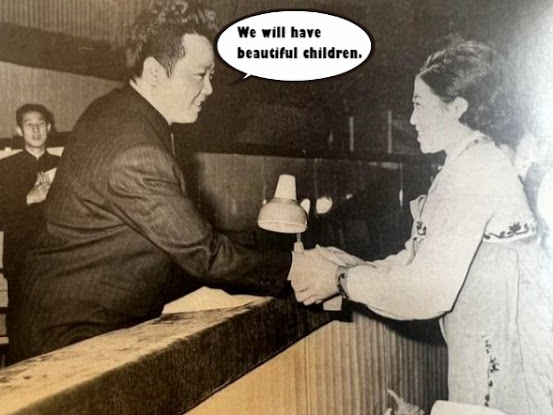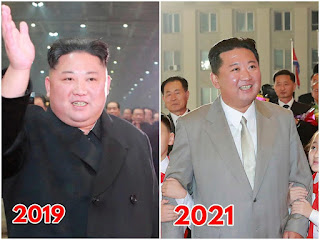Dominion (pronounced duh-min-yon)
(1) The power or right of governing and controlling; sovereign authority.
(2) Rule; control; domination; predominance; ascendancy.
(3) A territory, usually of considerable size, in which a single ruler-ship holds sway (used sometimes figuratively).
(4) Lands or domains subject to sovereignty or control.
(5) In political science, a territory constituting a self-governing commonwealth and being one of a number of such territories united in a community of nations, or empire. Formerly applied to self-governing former colonies of the British Empire; Canada, Australia, New Zealand, South Africa and later, others.
(6) In law, a rare (probably archaic) alternative spelling of dominium.
(7) In taxonomy, kingdom.
(8) A specialized classification in theology; in biblical scholarship, an order of angel in Christian angelology, ranked above virtues and below thrones.
Mid 1400s: From the Middle English dominion (lordship, sovereign or supreme authority), from the Middle & Old French dominion (rule, power), from the Medieval Latin dominionem (nominative dominio) or dominium (lordship, right of ownership), from dominus (lord, master), corresponding to dominium (property, ownership) from domus (house) from the primitive Indo-European root dem (house, household). The meaning "territory or people subject to a specific government” dates from the 1510s, the specific legal meaning at law “power of control, right of uncontrolled possession, use, and disposal" was codified by the 1650s. In law, dominion was used from the 1510s to refer to (a territory or people subject to a specific government or control) and in the law of real property, from the 1650s assumed the meaning "power of control, right of uncontrolled possession, use, and disposal".
British sovereign colonies often were called dominions, hence the Dominion of Canada, the formal title after the 1867 union, Dominion Day, the Canadian national holiday in celebration of the union, and “Old Dominion”, the popular name for the US state of Virginia, first recorded 1778. Dominions are best remembered as the quasi-independent nations under the British Crown, constituting the part of the British Empire best remembered as “the white dominions” or, later, “the white commonwealth”. Canada was the first, declared in 1867 and Australia, New Zealand, Newfoundland and South Africa followed. Later additions included the Irish Free State and the states of the old Raj, India, East and West Pakistan, and Ceylon. The Balfour (Arthur Balfour (later Lord Balfour), 1848–1930, UK prime-minister 1902-1905; Lord President of the Council 1925-1929) Declaration of 1926 recognized the United Kingdom and the Dominions to be "...autonomous Communities within the British Empire, equal in status, in no way subordinate one to another in any aspect of their domestic or external affairs, though united by a common allegiance to the Crown, and freely associated as members of the British Commonwealth of Nations." and the Statute of Westminster (1931), in what was the first general enactment for the constitution of the British Empire since Lord North's (later Lord Guilford, 1732–1792; GB prime-minister 1770-1782) regulating act of 1778, granted them what was close to legislative independence.
The word dominion was earlier used to refer to a geographically-defined political entity without legal status mentioned above. Wales was thus described between 1535-1801 and New England between 1686-1689. It was also the popular name for the US state of Virginia, the use first recorded in 1778. While never bothering fully to define the status, the covenant of the League of Nations made provision for the admission of any “fully self-governing state, Dominion, or Colony”, the implication being that Dominion status was something between that of a colony and a state. That certainly reflected British Empire practice.
Flag of Canada, adopted 1965.
Canada, officially still uses the title though it’s now merely historical with no constitutional effect, the most obvious residual effect the annual "Canada Day" national holiday (1 July) in celebration of the 1867 act of union which some older folk still refer to as "Dominion Day", the official title until 1982. Prior to the act of union, the idea of a confederation comprising the colonies of British North America had been for some time discussed and on 1 July 1867, the Imperial Parliament created such a dominion by passing into law the British North America Act which joined the then defined territories of Upper and Lower Canada, New Brunswick & Nova Scotia. In a typically British colonial "fix", the act created the provinces of Ontario and Quebec, the latter to accommodate the French-speaking minority there clustered and made further provisions for other colonies and territories in future to join the dominion. It was on this constitutional framework that Canada evolved into its present form, the next major event in 1982 when the structurally significant (though by most barely noticed) Canada Act was passed which included the symbolically notable word "patriation" apparently a prime-ministerial invention by Lester B Pearson (1897–1972; Canadian prime minister 1963-1968) who in 1966 coined the term as a as a back-formation from repatriation (returning to a country of origin).
Canada, officially still uses the title “Dominion of Canada”, though it’s now merely historical with no constitutional effect, the most obvious residual effect the annual "Canada Day" national holiday (1 July) in celebration of the 1867 act of union which some older folk still refer to as "Dominion Day", the official title until 1982. Prior to the act of union, the idea of a confederation comprising the colonies of British North America had been for some time discussed and on 1 July 1867, the Imperial Parliament created the dominion by passing into law the British North America Act (1967) which joined the then defined territories of Upper and Lower Canada, New Brunswick & Nova Scotia. In a typically British colonial "fix", the act created the provinces of Ontario and Quebec, the latter to accommodate the French-speaking minority there clustered and made further provisions for other colonies and territories in future to join the dominion.
It was on this constitutional framework that Canada evolved into its present form, the next structural event in 1982 when the significant (though by most barely noticed) Canada Act was passed which included the symbolically notable word "patriation" apparently a prime-ministerial invention by Lester B Pearson (1897–1972; Canadian prime minister 1963-1968) who in 1966 coined the term as a back-formation from repatriation (returning to a country of origin). In this context the difference between "patriation" & “repatriation” was merely political, lawyers agreeing there was no technical point to be argued but as a symbolic gesture, it appealed to politicians who wished to make the point that the Canadian constitution was, for the first time, fully to be in Canadian hands. Prior to the 1982 act, the process to amend the constitution required the parliament in Ottawa to request the parliament in Westminster to give effect to the change; the United Kingdom assembly thus still functioning as an imperial parliament. This was the arrangement which prevailed upon the granting of dominion statue in 1867 and while the 1931 Statute of Westminster (limiting the circumstances win which the British Parliament's could legislate for Canada) and the 1949 British North America (No 2) Act (granting the (federal) parliament in Ottawa significant authority to amend the constitution) did render Canada de facto independence, the device of needing to refer major amendments to London remained.
The retention of this authority in London was not the choice of the colonial oppressors, successive British governments having offered to expedite any (patriative or repatriative as preferred; repatriate from the Latin repatriare, the construct being re- (back, backwards, again) + patria (homeland) and cognate to repair (to return)) request from the Canadian parliament, but rather the inability of the politicians in Ottawa to secure the agreement of the politicians in Quebec City about the exact model of any locally-held authority. In one of the charming quirks which emerged as the decolonization processes of the twentieth century unfolded, the view, rightly or wrongly, of the French-speaking politicians in Quebec was that the UK politicians would be less likely to make changes disadvantageous to them than would other Canadian politicians.
In the end, despite decades of discussion, debate and dissent, unanimous agreement between the federal and provincial governments proved impossible to secure and it was announced by Ottawa that regardless of that, the request would be made unilaterally to patriate the constitution from Britain. Several provinces challenged that in the Supreme Court of Canada but the judges (in something of an echo of the prevailing view about the circumstance of the 1975 dismissal of an Australian prime-minister in 1975) ruled that provincial consent was not a legal necessity although “substantial consent” by the provincial assemblies was a longstanding constitutional convention. As it turned out, with a small legislative tweak, the Canadian prime-minister was able to obtain the agreement of nine of the ten provinces, thereby presumably satisfying both spirit and letter.
In Westminster, a few MPs took advantage of the situation to do a bit of virtue-signaling and generally practice the politics of “warm inner glow” by voting against the Canada Act (1982) claiming to be concerned about Canada’s prior treatment of Quebec and its indigenous peoples. The UK government however, although concerned about a couple of technical points, quickly passed the act and from that point, Canada became wholly independent, the position of Queen Elizabeth II as head of state an entirely personal relationship with the Canadian government with no connection to the government of the UK. Presumably to try to show the people of Canada something had happened, the name of the Dominion Day national holiday was changed to Canada Day.
King George V with prime ministers at the 1926 Imperial Conference. Back row: WS Monroe (Newfoundland), JG Coates (New Zealand), SM Bruce (Australia), JBM Hertzog (South Africa) and WT Cosgrave (Irish Free State). Front row: Stanley Baldwin (United Kingdom), King George V, Mackenzie King (Canada).
Creating some confusion, which they seem often to have enjoyed, the Colonial Office referred to all the Empire’s possessions as dominions (with a small d) while those with a capital D were the Dominions (Australia, NZ et al) proper. Thus all Dominions were dominions but not all dominions were Dominions. How the Foreign Office must have envied the pedantry.
Dylan Thomas’ poem And Death Shall Have No Dominion recalls Romans 6:9 (King James translation) “death hath no more dominion”.
And death shall have no dominion.
Dead man naked they shall be one
With the man in the wind and the west moon;
When their bones are picked clean and the
clean bones gone,
They shall have stars at elbow and foot;
Though they go mad they shall be sane,
Though they sink through the sea they shall
rise again;
Though lovers be lost love shall not;
And death shall have no dominion.
And death shall have no dominion.
Under the windings of the sea
They lying long shall not die windily;
Twisting on racks when sinews give way,
Strapped to a wheel, yet they shall not
break;
Faith in their hands shall snap in two,
And the unicorn evils run them through;
Split all ends up they shan't crack;
And death shall have no dominion.
And death shall have no dominion.
No more may gulls cry at their ears
Or waves break loud on the seashores;
Where blew a flower may a flower no more
Lift its head to the blows of the rain;
Though they be mad and dead as nails,
Heads of the characters hammer through
daisies;
Break in the sun till the sun breaks down,
And death shall have no dominion.














%20interview.jpg)